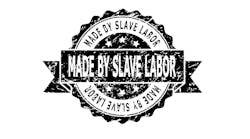The U.S. Department of Labor (DOL) says it intends to unveil new overtime and joint employer rules in the recognizably near future.
On Oct. 17 the department issued its fall regulatory agenda—not necessarily out of a public-spirited desire to be transparent, but because, as is the case with other federal regulatory agencies, it is required to do so by law.
In mid-September the National Labor Relations Board (NLRB) unveiled a proposed rulemaking to re-establish the joint employer definition that had existed under labor law for many decades before the Obama-era board changed it to make employees of staffing firms and franchises like McDonald’s more available for union organizing.
That kicked off a years-long legal and lobbying battle by employer groups seeking to reverse the NLRB decision. President Trump’s election and his eventual appointment of a Republican-majority board led to the board opening a proposed rulemaking to go back to the previous standard.
When it comes to DOL, if its rule comes to fruition, two companies would be considered joint employers—making them equally liable for wage and hour enforcement—only if they share or co-determine the essential terms and conditions of employment, and actually exercise a right to control the employees’ work.
Unfortunately, DOL’s regulatory agenda lacks detail when it comes to this particular proceeding, simply declaring that it will “propose an update to its regulations concerning joint employment, i.e., those situations in which a worker is considered an employee of two or more employers jointly.” However, it is probably safe to expect the proposal will be similar in thrust to the NLRB plan and will aim to return the standards to a pre-Obama Administration formula.
“This kind of proposal would almost certainly mean that fewer businesses would be found to be a joint employer by a court or agency,” explains attorney Richard R. Meneghello from the law firm of Fisher Phillips.
DOL’s agenda also lays out a plan to unveil new overtime standards in March 2019. Once again, this controversy over federal overtime rules began during the Obama Administration, when DOL attempted to hike the minimum salary level for being considered exempt much too high, according to employer groups.
Under that plan, to be considered exempt, the minimum threshold would have increased from $455 to $913 per week, or $47,476 annually (up from $23,660 per year). This amount also would have been updated every three years to keep up with inflation. The changes were never implemented because a court enjoined them in December 2016, and the incoming Trump Administration pulled them back for a second look.
A Moveable Deadline
The comment period for a new proposed overtime rule ended in September 2017, and since then the rulemaking has been hanging in limbo. DOL has delayed its announced deadline for releasing a final rule several times, most recently to January 2019 before pushing that off to March in its fall agenda.
The new overtime rule is likely an increase in the minimum salary for exemption to something in the low-to-mid $30,000s, predicts attorney Allan Bloom of the Proskauer Rose law firm. “This would be consistent with Labor Secretary Alexander Acosta’s comments on the issue, but still considerably lower than the level proposed by the Obama Administration.”
It also would be significantly lower than minimum salaries for exemption that already have been adopted by some of the states. For example, New York’s minimum for exempt executive and administrative employees will climb to $58,500 at the end of this year.
Bloom believes it is possible that DOL will depart from a one-size-fits-all salary minimum and propose different tests for smaller or non-profit employers. “Small businesses, non-profits and educational institutions were among the loudest voices in opposition to the 2016 overtime rule changes, and would be among the hardest hit by any increase in the minimum salary levels,” he points out.
Following completion of a six-month pilot test period, DOL also confirmed that it will continue its Payroll Audit Independent Determination (PAID) program through March 2019. This is a voluntary supervised settlement program of Fair Labor Standards Act (FLSA) overtime and minimum wage violations that is run by the DOL’s Wage and Hour Division.
With PAID, employers can self-identify FLSA violations to the DOL, work with the department to determine the amount of back wages owed, pay back wages directly to employees, obtain a release of those FLSA claims, and in that way end up avoiding paying liquidated damages, civil monetary penalties and plaintiffs' attorney fees.
The program drew fire from unions and their political allies. The attorneys general of 11 states publicly condemned PAID and vowed to pursue their own wage enforcement laws vigorously. Some employer attorneys also warned employers about the program’s potential drawbacks, including the exposure of employers to greater liability even after wage violations are reported to the program administrators.




